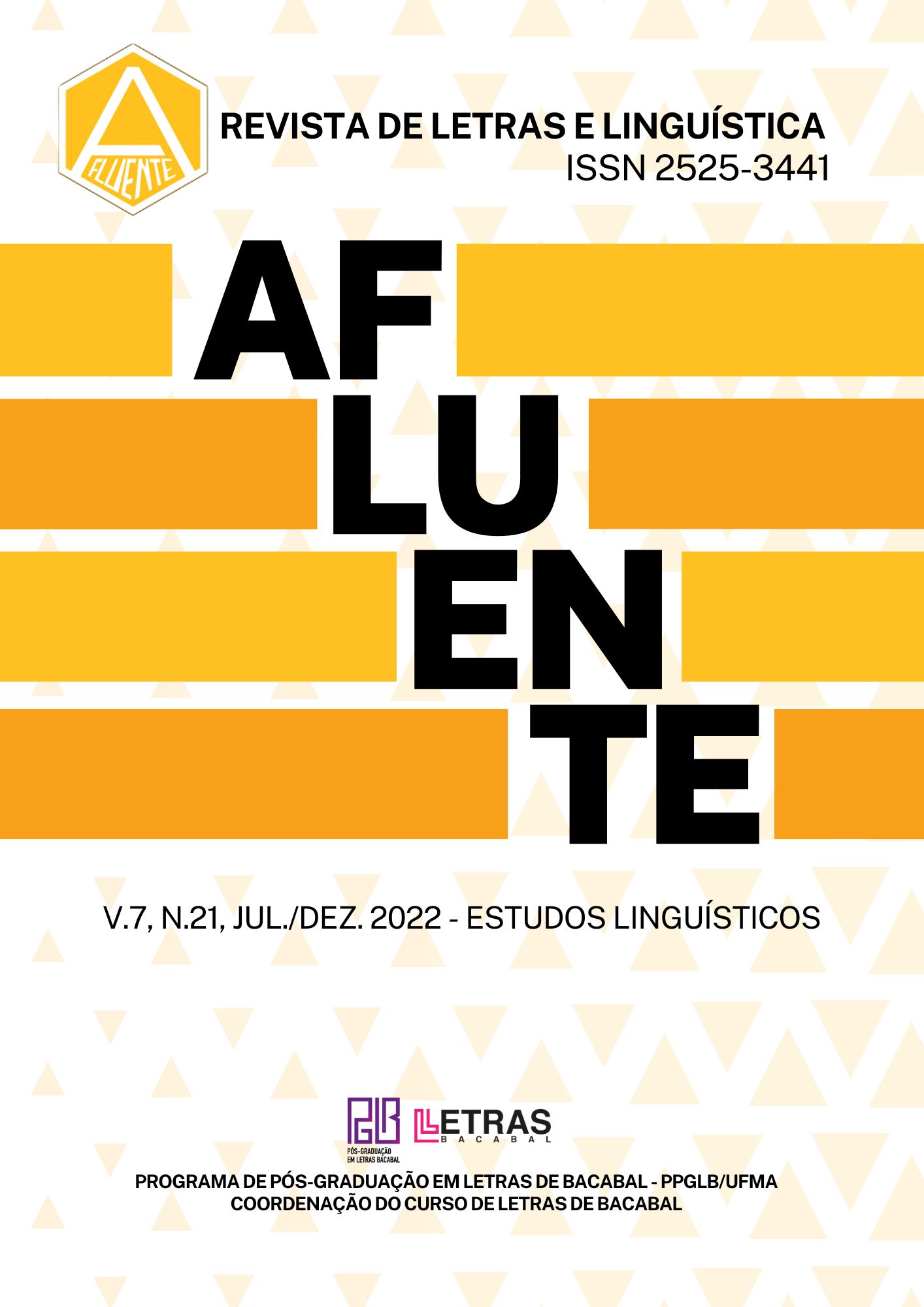O DESENVOLVIMENTO DA ESCRITA CRIATIVA FANFICTIONAL EM INGLÊS COMO LÍNGUA ADICIONAL
DOI:
https://doi.org/10.18764/2525-3441v7n21.2022.21Palavras-chave:
Escrita Criativa, Teoria sociocultural, FanfictionResumo
A Escrita Criativa Fanfictional (ECF) tem sido pouco abordada nas pesquisas acadêmicas contemporâneas brasileiras. Por conseguinte, a Escrita Criativa Fanfictional em inglês como língua adicional tem sido abordada com menorfrequência ainda (MYERS, 2006; MORLEY, 2007; BLYTHE and SWEET, 2008; HEALEY,2009; OBERHOLZER, 2014). Segundo o Fórum Mundial Econômico (2015), a criatividade vem ganhando cada vez mais espaço e relevância na educação globalizada e no empreendedorismo social. Entretanto, há poucas pesquisas acadêmicas que abordam o desenvolvimento da criatividade em meios escolares tanto formais quanto informais. Isto pode indicar que a comunidade educacional não vem incentivando o desenvolvimento da criativa entre seus alunos ou mesmo não sabe como desenvolvê-la. Por esses motivos, o objetivo desta pesquisa foi o de identificar como os alunos da ECF podem desenvolver sua criatividade e redação criativa de textos em inglês como língua adicional (ILA). Desta forma, um curso extracurricular de ECF com inglês como língua adicional foi desenvolvido e ministrado na USP em 2016. A metodologia de pesquisa abarcou tanto a organização quanto a ministração do curso ECF baseado diretamente na teoria sociocultural vygotskiana (VYGOTSKY, 2004;2007). O enfoque desta pesquisa foi um estudo de caso (DUFF, 2008; DUFF, 2012; DYSON, 2005; STAKE, 2006). Como resultado, a produção textual da aluna selecionada mostrou que houve sinais de desenvolvimento acerca dos digitalscripts, fanwriting-creative writing techniques e fandom-paratextual scripts.
Downloads
Referências
BLYTHE, H, & SWEET, C. Why creativity, why now? Tomorrow’s Professor, 2008.
CHAIKLIN, S. The zone of proximal development in Vygotsky’s analysis of learning and instruction. In: A., Kuzolin; B. Gindis; V.S. Ageyev & S.M. Miller (Eds.), Vygotsky’s Educational Theory in Cultural Context. Cape Town: Cambridge University Press, 2003.
DUFF, P. How to carry out case study research. In: A. Mackey & S. M. Gass (Eds.). Research methods in second language acquisition: A practical guide. New York: Wiley-Blackwell, 2012.
DYSON, A. H. On the case: Approaches to language and literacy research. New York: Teachers College Press and the National Conference on Research in Language and Literacy, 2005.
JENKINS, H. Fans, Bloggers, and Gamers: Exploring Participatory Culture. New York and London: New York University Press, 1992.
JENKINS, H. 2007. Textual Poachers: Television Fans and Participatory Culture. New York: Routledge.
HODGES, R. and KRESS, G. Social Semiotics. Cambridge: Polity, 1998.
LEMOS, A. Cibercultura. Tecnologia e Vida Social na Cultura Contemporânea. Porto Alegre, RS: Sulina, 2004.
LÉVY, P. Cyberculture. Cambridge University Press, 1999.
MORLEY, D. The Cambridge Introduction to: Creative Writing. Cambridge University Press, 2007.
MYERS, D. The Elephants Teach: Creative Writing Since 1880. New Jersey: Prentice Hall, 2006.
OBERHOLZER, P. Student Conceptions of Creative Writing. Masters Research Report, University of the Witwatersrand, 2014.
REY, J. Not just Piaget, not just Vygotsky, and certainly not Vygotsky as an alternative to Piaget. In: Shayer, M., ed. Learning intelligence, cognitive acceleration across the curriculum from 5 to 15 years. UK: Open University Press, 2008.
STAKE, R. Multiple case study analysis. New York: Guilford, 2006.
TRIFONAS, P. P. Handbook of Cultural Studies and Education. Routledge, 2015.
WATTPAD. Available on <https://www.wattpad.com/>. Accessed on 04/08/2019.
VYGOTSKY, L. S. Mind in Society: The Development of Higher Psychological Process. Cambridge, Mass: Harvard University Press, 2004.
VYGOTSKY, L. S. Thought and language. Cambridge, MA: The Massachusetts Institute of Technology, 2007.
VYGOTSKY, L. S. The Psychology of Art. Cambridge, MA: The Massachusetts Institute of Technology, 2018.
WEF. WORLD ECONOMIC FORUM. Industrial Internet of Things: Unleashing the Potential of Connected Products and Services, 2015.
Downloads
Publicado
Como Citar
Edição
Seção
Licença
Copyright (c) 2022 Afluente: Revista de Letras e Linguística

Este trabalho está licenciado sob uma licença Creative Commons Attribution 4.0 International License.
Direitos autorais Afluente: Revista Eletrônica de Letras e Linguística
Este trabalho está licenciado com uma Licença Creative Commons - Atribuição 4.0 Internacional.















